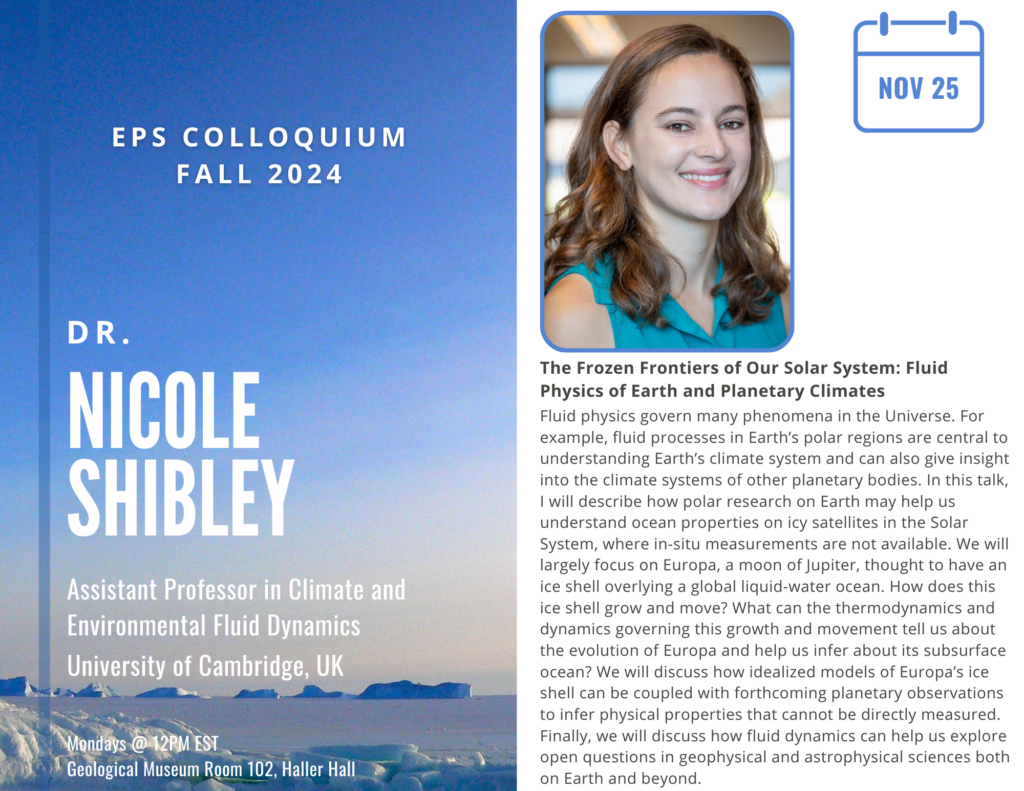EPS Colloquium – Nicole Shibley, University of Cambridge, UK
The Frozen Frontiers of Our Solar System: Fluid Physics of Earth and Planetary Climates
Fluid physics govern many phenomena in the Universe. For example, fluid processes in Earth’s polar regions are central to understanding Earth’s climate system and can also give insight into the climate systems of other planetary bodies. In this talk, I will describe how polar research on Earth may help us understand ocean properties on icy satellites in the Solar System, where in-situ measurements are not available. We will largely focus on Europa, a moon of Jupiter, thought to have an ice shell overlying a global liquid-water ocean. How does this ice shell grow and move? What can the thermodynamics and dynamics governing this growth and movement tell us about the evolution of Europa and help us infer about its subsurface ocean? We will discuss how idealized models of Europa’s ice shell, adapted from considerations of Earth’s cryosphere, can be coupled with forthcoming planetary observations to infer physical properties that cannot be directly measured. Finally, we will discuss how fluid dynamics can help us explore open questions in geophysical and astrophysical sciences both on Earth and beyond.
To be added to the EPS colloquium mailing list, please contact Caroline Carr at carolinecarr@fas.harvard.edu.

Dr. Nicole Shibley is an Assistant Professor at the University of Cambridge in the Department of Applied Mathematics & Theoretical Physics, jointly with the Department of Earth Sciences. Her research broadly investigates heat-transport processes in the Arctic Ocean, as well as ice-ocean dynamics on ice-covered moons in the Solar System. Previously a postdoctoral fellow and 2023-24 John Archibald Wheeler postdoctoral fellow at the Princeton Center for Theoretical Science, Nicole earned her Ph.D. in Earth and Planetary Sciences from Yale University, her M.Phil. in Geology and Geophysics from Yale University, her M.A.St. in Mathematics from the University of Cambridge, and her B.S. in Physics from Yale University. Her work has been supported by the American Physical Society Topical Group on the Physics of Climate Early Career Investigator Award, the Princeton Center for Theoretical Science Postdoctoral Fellowship, and the National Defense Science and Engineering Graduate Fellowship, among other honors.

